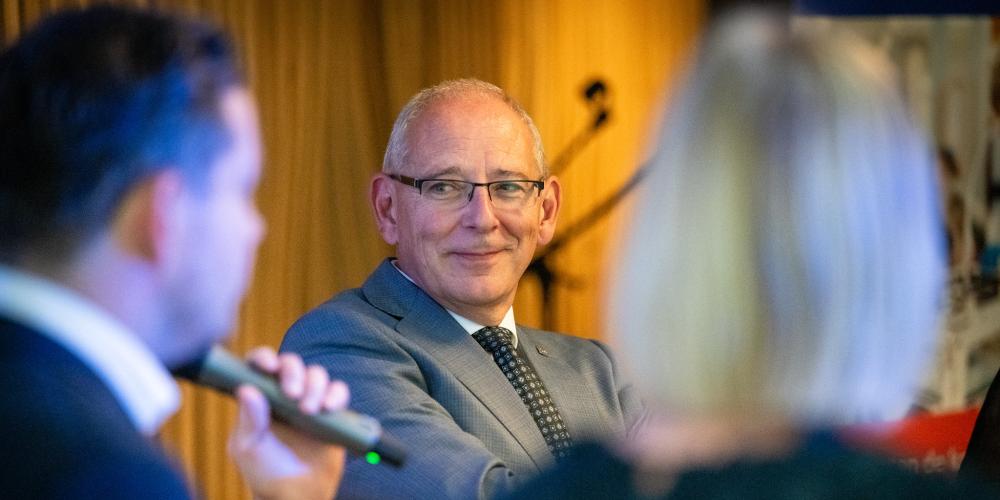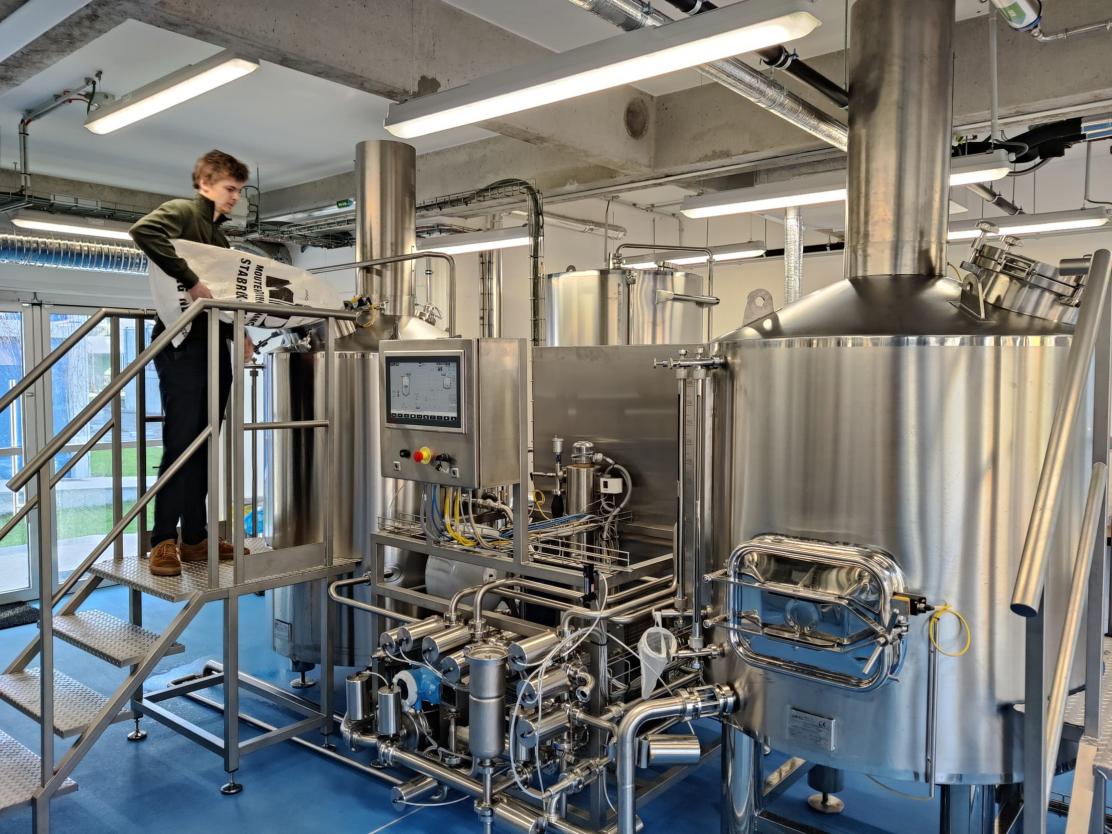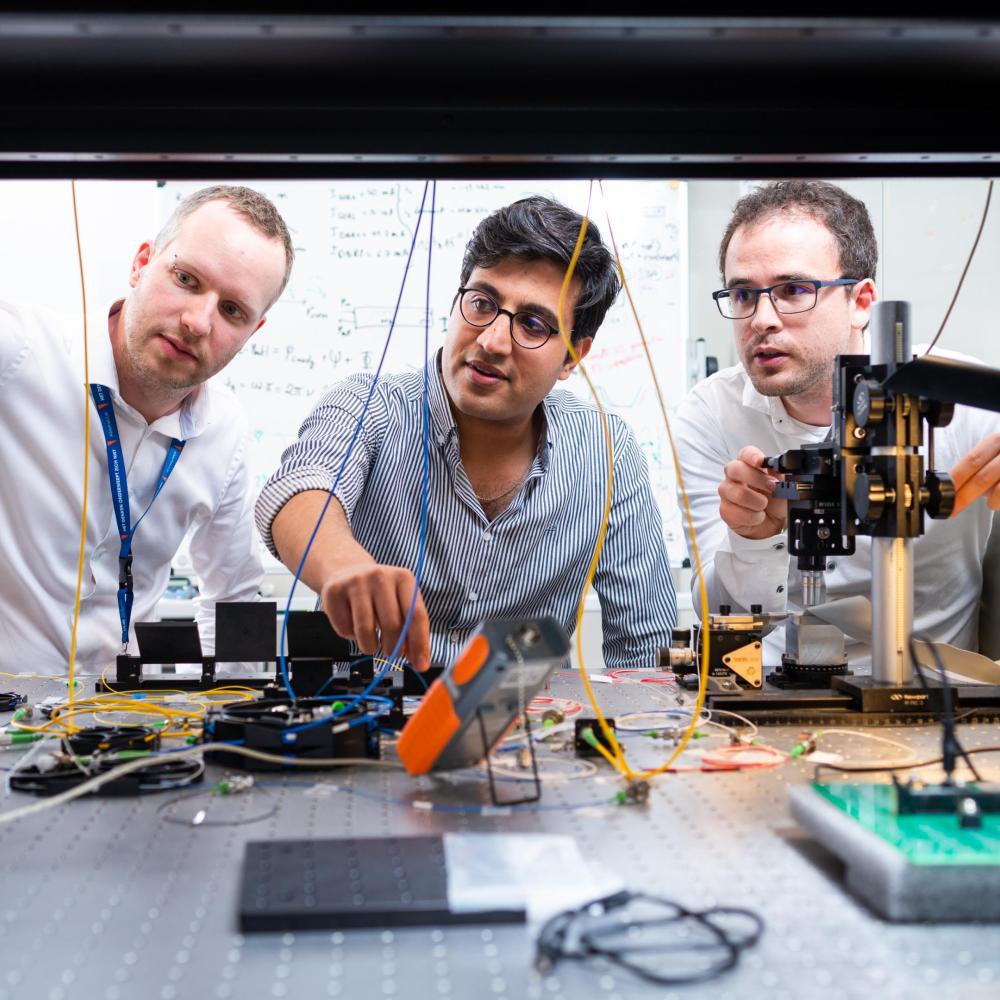
The Vrije Universiteit Brussel is putting its weight behind the Brussels leg of the Flanders Technology & Innovation festival, which runs from 15-22 March. Vice-rector of Innovation & Valorisation Hugo Thienpont: “Artificial intelligence, robotics, photonics, biotechnology and sustainable energy are crucial areas where the VUB is very strong.”
A hands-on festival of Flanders Technology & Innovation in Brussels: Besides your own Photonics Campus in Gooik, where else would you go?
"Of course, you'll find me at the Photonics Campus. But I would also definitely visit the VUB Main Campus because there are many other important elements related to technology and innovation. That includes robotics, biotechnology, sustainable energy, and artificial intelligence. These are key technologies that are essential for Flanders and Europe. It demonstrates that the VUB has a lot of unique offerings in the field of technology and innovation. But also at the Green Energy Park in Zellik, at UZ Brussels, and at the FARI - AI for the Common Good Institute in the heart of Brussels, there are many interesting innovations to discover."
Why is the festival being held?
"It's important to explain to the widest possible audience that you need technology and innovation to tackle the major problems of the future: energy issues, climate change, pollution, and health."
"Why does Technology and Innovation need the support of the general public?"
"The general public rightly wonders what happens to their tax money and why so much money needs to go into fundamental and applied research. Well, our research, technologies, and innovation ensure that Flemings can maintain their health, energy supply, mobility, data communication, comfort, and many other crucial factors. And, of course, this sector provides a lot of jobs for Flemings. FTI Brussels also focuses on young people. We see a steady decrease in the number of students choosing science, technology, engineering, and mathematics (STEM) disciplines, which are necessary for technology and innovation. In this way, FTI can rekindle and motivate our young people for STEM education so that we also have innovation talent available locally in the future."
"Are we not proud enough of our technology and innovation?"
"With our Flemish technology and innovation, we are at the top in Europe. But Flemings are reserved. We don't step onto the podium and shout about how good we are. We should do that a bit more because we should be proud of our achievements. Moreover, this could also work out well for us in terms of more European cooperation and new fundraising."

"What is the benefit for the VUB?"
"The VUB can also put its research performance more in the spotlight. In my view, we are very successful as an innovation university. The VUB scores incredibly well in the Times Higher Education Ranking in terms of innovation. This is measured in patents, spin-offs, and money we raise through European projects. We are also at the top in the figures of the Department of Economy, Science, and Innovation of the Flemish Government. And recently, it turned out that we belong to the top 20 universities in Europe that attract the most research funding from the EU. Per researcher, we are even the best-performing university in Flanders. These are objective figures, and we should showcase them at events like FTI Brussels. It's time we dare to say how good we are."
"You founded the Photonics Campus. What is crucial to be successful in technology and innovation as a researcher?"
"Originally, we were a research group that only did fundamental research. That's very nice, but if you really want to make a difference, you also need to look for applications. You can come up with those yourself, but you can also listen to what companies need. With such demand-driven research, you make the transition from fundamental to applied research. That doesn't mean you passively follow the market, because you choose yourself. Crucial is that you have your own technology. Then you can apply the research and even scale it up, so that you can bring it closer to the market together with companies. You can then show that the technology is ready to be applied. Europe is also spending more and more money on these so-called higher technology readiness levels. If our research groups can each grab a substantial piece of that, it will soon become a whole loaf for our university."
VUB among top fundraisers in Horizon Europe
“We owe it to our very strong, entrepreneurial researchers”
Alongside KU Leuven and UGent, the VUB is in the top 20 universities when it comes to securing EU funding in the Horizon Europe framework programme. “Flanders has brains, that’s what we have.”
What does the VUB owe this to?
First and foremost, to its researchers. As vice-rectors, we rolled out the strategy. At Innovation and Research, we set up two cells that support researchers in applying for research funds. We look with them for the best EU calls to apply to, and we support them with project writing, finance and administration. That’s a very big help that enables our researchers to compete in those European programmes. In the end, you can do whatever you want centrally, but if the researchers don’t want to participate, you won’t get anywhere. So we owe the success in the first place to our very strong, enterprising researchers.
What does this say about applied scientific research in Flanders?
That we are doing very well. Flanders is absolutely top in applied research. The Flemish government also puts a lot of effort into it financially. The total Flemish government budget for science and innovation was €3.3 billion when the 2023 budget was drawn up. That brings results: Flanders is among the top five innovative regions in the EU. Flanders has brains, that’s what we have.
What is the next goal for research at the VUB?
We need to involve all faculties in the process of bringing in more research funds for innovation and research, including humanities and social sciences. The European Union understands very well that the social component plays a major role and also makes finances available for it. We have to respond to that. We also have to approach it on a larger scale. Get research groups to work together; that way you stand a much better chance of getting funding. And finally, we must ensure that we have the cutting-edge technology and instrumentation we need to carry out our key research independently. Then you can make a much better leap to an industrial and/or societal application.
